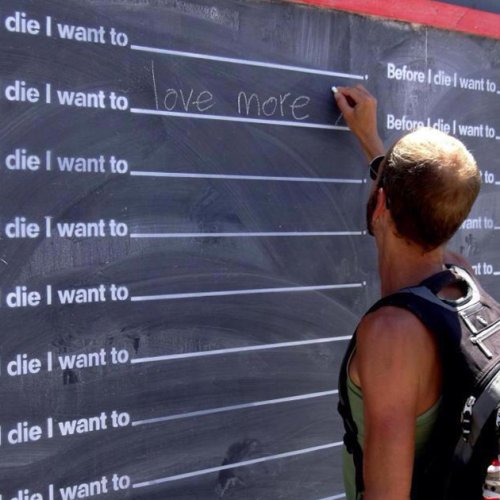Showing 1–12 of 26 results
-
Add to cart
Questioning the Unquestionable Mind
45.00€Date: Saturday 18th of February, 2017
Time: 10:00 – 14:00
Location: Barcelona
Language: EnglishSometimes we think that something should be different than how it is… ”My husband should love me more”, ”My children should appreciate me more”, ”My boss should be kinder to me”, ”My mother should respect my decisions and not meddle so much in my life”.
When you believe these thoughts, you suffer.
But you have to know that the reason for your unhappiness is not found outside of you, but in what you believe in. Only when you free yourself from these thoughts do you find peace with yourself and with the world around you.
-
Add to cart
Deja de Comer por Ansiedad…Llenándote
45.00€Día: Sábado, 25 febrero 2017
Hora: 10:00h – 14:00h
Dónde: Barcelona
Idioma: CastellanoCompleto
¿Es la comida un problema para ti?
¿Ves el frigorífico como un enemigo invencible?
¿Tu cuerpo te está pidiendo un cambio definitivo?
¿Qué te propongo para perder peso?
Te propongo perder peso llenándote… ¡de satisfacciones!
-
Add to cart
Supera tu Miedo al Rechazo
45.00€Día: Viernes, 24 marzo 2017
Hora: 18:00h – 22:00h
Dónde: Barcelona
Idioma: CastellanoCompleto
¿Sientes que el miedo al rechazo condiciona tu día a día? ¿Sientes que necesitas caer bien a los demás? ¿Te encuentras buscando la aprobación de otros?
-
Add to cart
Overcome Your Fear of Rejection
45.00€Date: Sunday 26th of March, 2017
Time: 17:00 – 21:00
Location: Barcelona
Language: EnglishCompleto
Do you feel that your fear of rejection influences your day-to-day life? Do you feel that you need other people to like you? Do you find yourself seeking out approval from others?
-
Add to cart
Free Yourself from Guilt
45.00€Date: Saturday 8th of April, 2017
Time: 10:00 – 14:00
Location: Barcelona
Language: EnglishFully Booked
How often do we feel guilty about the things we have done – or about the things we haven’t?
How many hours have we invested in reviewing again and again the same scenarios, making assumptions and wallowing in the treacherous “what ifs?”
-
Add to cart
Cómo Liberarse de la Culpa
45.00€Día: Domingo, 9 abril 2017
Hora: 17:00h – 21:00h
Dónde: Barcelona
Idioma: CastellanoCompleto
¿Cuántas veces nos sentimos culpables por cosas que hemos hecho o por las que no hemos hecho?
¿Cuántas horas hemos invertido en recrear una y otra vez el mismo escenario? -
Add to cart
Free Yourself from Compulsive Eating – by Filling Yourself Up
45.00€Date: 11th of April, 2017
Time: 19:00 – 22:30
Location: Barcelona
Language: EnglishFully Booked
Is food a problem for you? Do you see the fridge as an unbeatable enemy? Is your body asking for a definitive change?
What do I propose to lose weight?
I am proposing a solution that does NOT involve miracle diets. It is NOT based on starving yourself and then quickly piling on the lost kilos again, once the diet is over.
I am proposing to lose weight by filling yourself up with… satisfactions!!
-
Add to cart
Toma el Control de tus Emociones con la PNL
45.00€Día: Sábado, 15 abril 2017
Hora: 10:00h – 14:00h
Dónde: Barcelona
Idioma: CastellanoSubmodalidades de la PNL
Para la mayoría de nosotros, el modo en el que representamos pensamientos y recuerdos en nuestra mente, tiende a tener un impacto en cómo nos sentimos. Por ejemplo, si te ves a tí mismo teniendo éxito, te sientes bien, si te imaginas teniendo miedo, te sientes mal.
La PNL (Programación Neuro-Linguística) nos provee de un manual y modelo de cómo la mente funciona, ya que estudia la manera en la que los seres humanos perciben el mundo y cómo procesan la información y las experiencias.
Las submodalidades dentro de la PNL son la manera en la que representamos internamente la información o datos recogidos por nuestros sentidos.
«Considero al modelo de submodalidades como probablemente lo más significativo que haya creado hasta ahora…»
– Richard Bandler, el Co-Creador de PNL -
Add to cart
Take Control of Your Emotions with NLP
45.00€Date: Sunday 16th of April, 2017
Time: 17:00 – 21:00
Location: Barcelona
Language: EnglishNLP Submodalities
For most of us, the way in which we represent thoughts and memories in our minds tends to have an impact on how we feel. For example, if you picture yourself being successful, you feel good. If you think about something that scares you, you feel bad.
NLP (Neuro-Linguistic Programming) provides us with a manual and model of how the mind works, as it studies the way in which human beings perceive the world and how they process information and experiences.
The submodalities within NLP are the way in which we internally represent information or data recorded through our senses.
“I consider the model of Submodalities the most significant thing I probably have done until now…» Richard Bandler, Co-Creator of NLP
-
Add to cart
The Art of Defining your Goals and How to Achieve Them
45.00€Date: Saturday 27th May, 2017
Time: 10:00 – 14:30
Location: Barcelona
Language: EnglishAre you clear about your goals? Have you set goals for yourself in one or several aspects of your life? Or are you, on the other hand, someone who lets himself be carried by the flow of life? Do you perfectly plan your four weeks of annual vacation, leaving aside the other 48 weeks of the year without direction?
During my private sessions and workshops I often observe that many people do not have defined goals, due to different reasons. Yet if you do not know where you are heading, how can you know where you are going?
-
Add to cart
El Poder de Descubrir tus Estrategias Mentales
45.00€Día: Domingo, 4 junio 2017
Hora: 16:00h – 21:00h
Dónde: Barcelona
Idioma: CastellanoCompleto
¿Qué haces para enfadarte?
¿Qué haces para ponerte triste?
¿Qué haces para ponerte alegre?
¿Qué haces para sentirte inseguro?Cuando formulo estas preguntas a la gente, primero hay un silencio… y luego la respuesta tiende a ser algo así como “No lo sé”, o “No tengo ni idea.” Para mucha gente no tiene sentido el preguntar qué es lo que tú haces para sentir estas emociones.
Pero el aprender cómo se generan estas emociones nos lleva a la raíz de cualquier problema sin quedarnos atascados en los síntomas.
A veces es necesario desaprender lo aprendido para poder actuar de manera más flexible y en la dirección adecuada para conseguir los resultados deseados.
-
Add to cart
Aviva tu Poder Interno
35.00€Día: Viernes, 20 octubre 2017
Hora: 18:00h – 22:00h
Dónde: Barcelona
Idioma: Español¿Sientes que te minimizas frente a según qué personas, frente a según qué situaciones?
¿Ves a otras personas – no más inteligentes que tú – lograr grandes objetivos?
¿Te autoconvences de que esta forma de vida es únicamente la que puedes conseguir?








